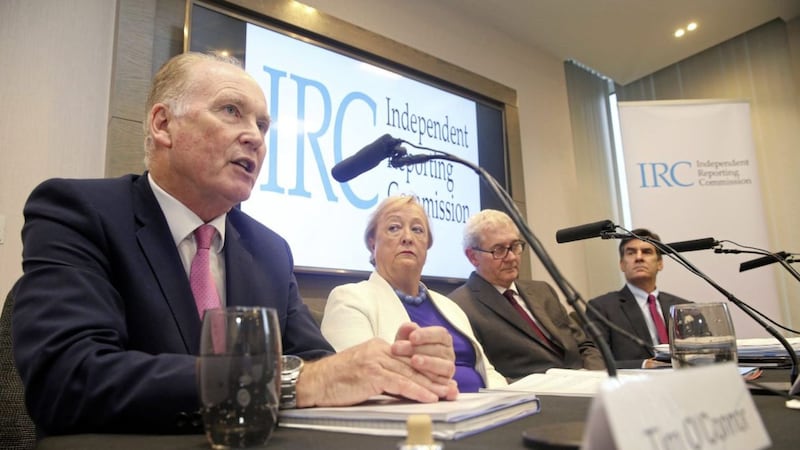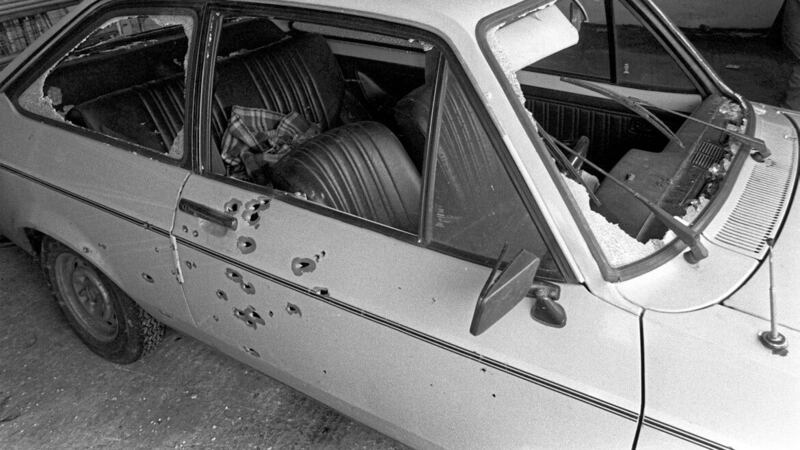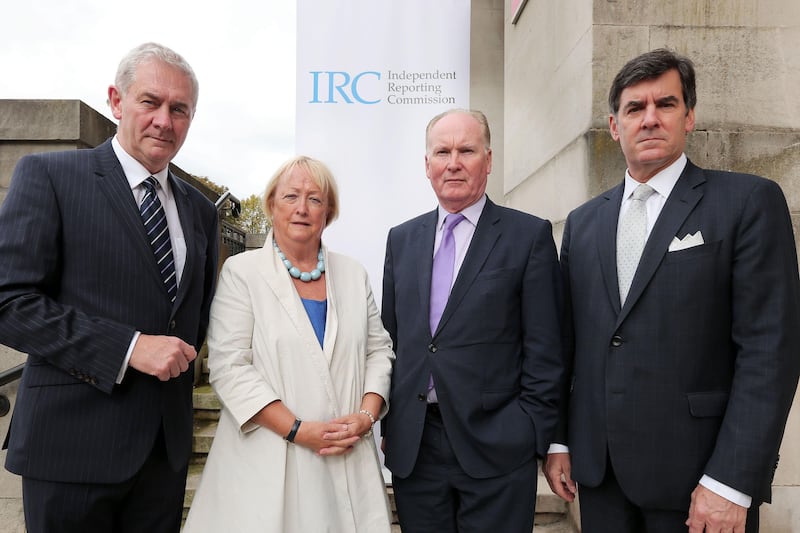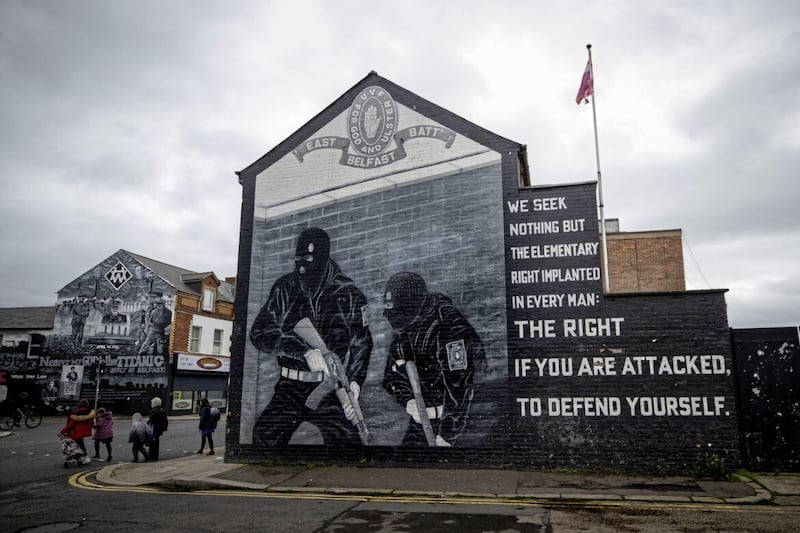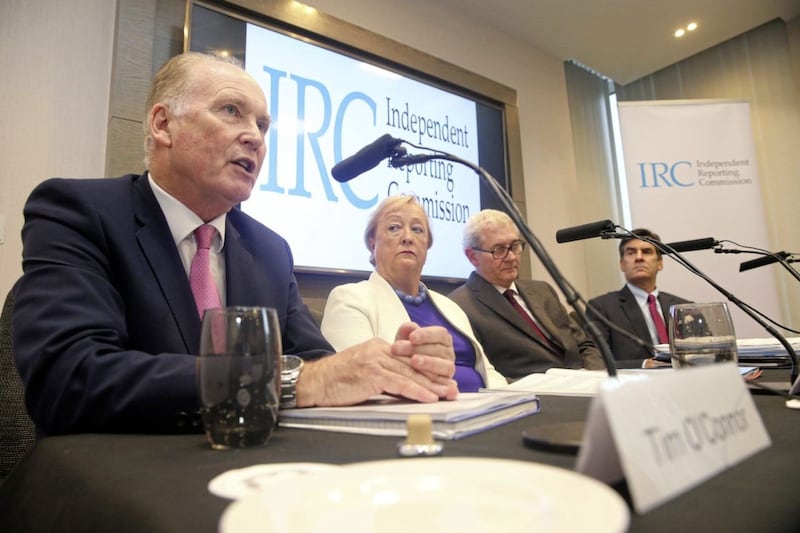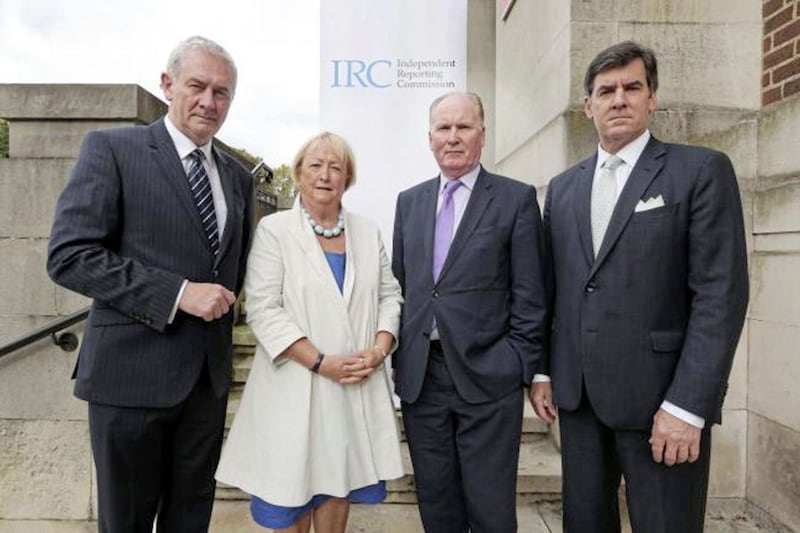ANYONE waiting for a good, bad and ugly assessment of paramilitary groups in the Independent Reporting Commission's third annual report will have been disappointed yesterday.
The commission is not a ceasefire monitoring body, and while it meets with a wide range of people, including 'representatives' of loyalist and republican organisations, it does not make a list of who is and isn't still active.
In loyalism particularly, the fractured nature of such groups makes grading ceasefires a difficult and often meaningless task, given the fast nature at which change can sometimes take place.
More active loyalist groups, involved in criminality and coercion of their own communities, often revolve around small personality-led fiefdoms rather than any central structure.
The INLA often also using proxies to tax drug dealers or front up criminal enterprises, people who are quickly disowned by the leadership if they find themselves before a judge.
What the report does is look at the wider picture and more importantly the wider solution.
Much of that centres around empowerment of communities, especially when it comes to the young people who find themselves being lured into paramilitary activity.
As the security situation has slowly stabilised, the motivation for joining such groups has changed.
It is often less about ideology and more about status and standing within areas where there is little in the way of opportunity.
Tackling this requires buy-in from almost every government agency, and until now is something that has seemed out of reach of the devolved administration.
Some of this is due to the huge scale of the task - changing mindsets, starting from education right up to how those communities view policing and the rule of law.
It also requires money set aside for the betterment of those most at risk to be spent efficiently and in the right places, with the right people.
While the IRC touches briefly on funding it does not go into any detail about the often unspoken policy of funding paramilitary-linked organisations to act as gatekeepers to communities.
There is little to disagree with in the report in terms of education, policing and proposed legislative changes.
However, much of this has been said before and feels like repetition of the obvious.
The fact remains that 22 years after the ceasefires, some paramilitary groups still have a power base in certain communities and execute summary justice against anyone who stands against them.
Changing that requires brave leadership which has until now been lacking in many quarters.
The IRC report will make for interesting reading for those who feel strongly about repairing the harm and empowering communities who are often last to feel the peace dividend.
It does however require follow-up from all agencies with the power to implement change, and that is something in Northern Ireland that can never totally be relied on.
